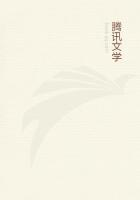Boehme describes the opposition in creation in the following way. If nature is the first efflux of the Separator, two kinds of life must yet be understood as in the counterstroke of the divine essence;beyond that temporal one there is an eternal, to which the divine understanding is given. It stands at the basis of the eternal, spiritual world, in the Mysterium Magnum of the divine counterstroke (personality) - a mansion of divine will through which it reveals itself and is revealed to no peculiarity of personal will. In this centrum man has both lives in himself, he belongs to time and eternity. He is universal in the “eternal understanding of the one good will which is a temperament;the original will of nature, viz. the comprehensibility of the Centra, where each centrum in the divisibility shuts itself in one place to egotism and self-will as a personal Mysterium or mind. The former only requires a counterstroke to its similarity; this latter, the self-generated natural will also requires in the place of the egotism of the dark impression a likeness, that is a counterstroke through its own comprehensibility; through which comprehension it requires nothing but its corporality as a natural ground.” Now it is this “I,” the dark, pain, fire, the wrath of God, implicitude, self-comprehension, which is broken up in regeneration; the I is shattered, painfulness brought into true rest - just as the dark fire breaks into light.(35)Now these are the principal ideas found in Boehme; those most profound are the generating of Light as the Son of God from qualities, through the most living dialectic; God's diremption of Himself. Barbarism in the working out of his system can no more fail to be recognized than can the great depths into which he has plunged by the union of the most absolute opposites. Boehme grasps the opposites in the crudest, harshest way, but he does not allow himself through their unworkableness to be prevented from asserting the unity. This rude and barbarous depth which is devoid of Notion, is always a present, something which speaks from itself, which has and knows everything in itself. We have still to mention Boehme's piety, the element of edification, the way in which the soul is guided in his writings. This is in the highest degree deep and inward, and if one is familiar with his form these depths and this inwardness will be found. But it is a form with which we cannot reconcile ourselves, and which permits no definite conception of details, although we cannot fail to see the profound craving for speculation which existed within this man.
1. Jacob B?hme's Leben und Schriften (in his Works, Hamburg, 1715, 4), No. I. § 18, pp. 11, 12; No. V., § 2, p. 54 and the title-page; No. I. § 57, pp. 27, 28.
2. Jacob B?hme's Leben und Schriften, No. I. 2-4, pp. 3, 4; § 6, 7, p. 5; § 10, 11, pp. 7, 8; §28, 29, pp. 17, 18.
3. Jacob B?hme's Leben und Schriften, No. VI. § 3-8, pp. 81-87; No. I. § 12-17, pp. 8-11.
4. Theosophische Sendbriefe, 47th Letter (Werke, Hamburg, 1715, 4), p. 3879.
5. Trostschrift von vier Complexionen, § 43-63, pp. 1602-1607.
6. Act I. Scene 2.
7. Von Christi Testament der heiligen Taufe, Book II. chap. i. § 4-5, pp. 2653, 2654.
8. Morgenr?the im Aufgang, Preface, § 84, 85, 88, p. 18.
9. Von wahrer Gelassenheit, chap. ii. § 9, 10, p. 1673.
10. Von den drei Principien g?ttlichen Wesens, chap. x. § 42, p. 470.
11. Von der Gnadenwahl, chap. i. § 3-10, pp. 2408-2410; chap. ii. § 9, p. 2418; § 19, 20, p.
2420; Schlüssel der vornehmsten Puncten und W?rter, § 2, p. 3668; § 145, 146, pp. 3696, 3697; Morgenr?the, chap. iv. § 9-21, pp. 49-51; chap. xi. § 47, pp. 126, 127, etc.
12. Morgenr?the, chap. i. § 3-7, 9-24, pp. 23-27; chap. ii. § 38-40, pp. 34, 35; § i. p. 28 [see Law's translation].
13. Morgenr?the, chap. ii. § 8, 14-18, 31-33, pp. 29-34 [see Laws' translation].
14. Morgenr?the, chap. iii. § 2, 8-11, pp. 36-38.
15. Morgenr?the, chap. iv. § 5, 6, p. 48; chap. viii. § 15-chap. xi. 46, pp. 78-126.
16. Morgenr?the, chap. iii. § 18, p. 40; chap. x. § 54, p. 115; § 39, 40, p. 112; chap. xi. §7-12, pp. 119, 120.
17. Von g?ttlicher Beschaulichkeit, chap. i. § 8-10, p. 173918. Von g?ttlicher Beschaulichkeit, chap. iii. § 1-3, pp. 1755, 175619. Morgenr?the, chap. iii § 33-35, p. 44 (cf. Rixner: Handbuch d. Gesch. D. Philos. Vol. II.
Appendix, p. 106, § 7).
20. Morgenr?the, chap. iii. § 15, 18-22, pp. 39-41.
21. Von g?ttlicher Beschaulichkeit, chap. iii, § 4, 5, p. 1756, § 12, p. 1758; Morgenr?the, chap. xii. § 99-107, p. 149, 150; chap. xiii. § 92-104, 31-52, pp. 166-168, 157-160; chap.
xiv. § 36, p. 178; Von den drei Principien g?ttlichen Wesens, chap. iv. § 69, p. 406; chap. xv. §5, 543, 544.
22. Morgenr?the, chap. xiii. § 53-64, pp. 160-162; Vierzig Fragen von der Seele, XII. § 4, p.
1201; Von sechs theosophischen Puncten, V. 7, § 3, p. 1537; Von wahrer Gelassenheit, chap. i.
§ 1-7, pp. 1661-1663; Von g?ttlicher Beschaulichkeit, chap. i. § 23-26, pp. 1742, 1743; Von der Geburt und Bezeichnung allor Wesen, chap. xvi. § 49, p. 2391; Vom übersinnlichen Leben, §41, 42, p. 1696 [see Law's translation].
23. Von der Menschwerdung Jesu Christi, Pt. I. chap. v. § 14 p. 1323; Von den drei Principien g?ttlichen Wesens, chap. x. § 43, p. 470.
24. Von g?ttlicher Beschaulichkeit, chap. iii. § 11, p. 1757.
25. Infra, p. 213.
26. Morgenr?the, chap. viii. § 15-20, pp. 78, 79; chap. x. § 38, p. 112; chap. xiii. § 69-91, pp. 162-166; chap xi. § 5-13, pp. 119, 120.
27. 177 Fragen von g?ttlicher Offenbarung, III. § 2-5, 10-16, pp. 3591-3595.
28. Von g?ttlicher Beschaulichkeit, chap. iii. § 12, 14, pp. 1757, 175829. Rixner: Handbuch d. Gesch. d. Philos. Vol. II. Appendix, p. 108, § 5 (from Boehme's Morgenr?the, chap. ii. § 16, pp. 30, 31; § 33, p. 34).
30. Morgenr?the, chap. xxiii. § 11, 12, pp. 307, 308 (cf. Rixner: Handb. d. Gesch. d. Philos.
Vol. II. Appendix, p. 108, § 5); Theosophische Sendbriefe, I. § 5, p. 3710.
31. Morgenr?the, chap. iii. § 29, 30, p. 43 [see Law's translation].














